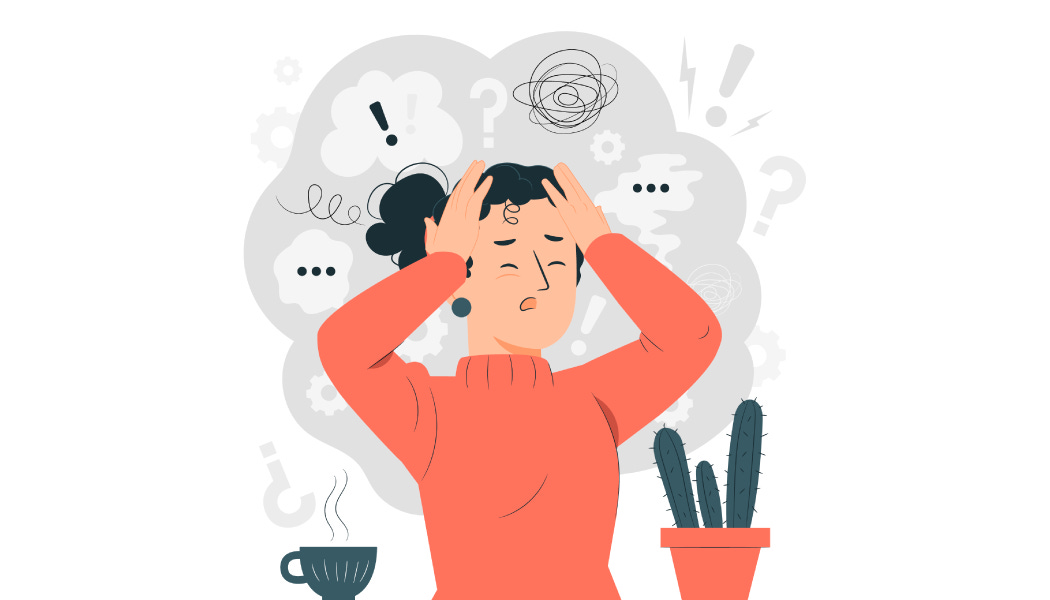Anxiety Disorders
Written by Aanya Deshpande
In 2019, 301 million people had anxiety, including 58 million adolescents. Anxiety is a common mental health disorder that causes severe anticipation of future concerning events. This disorder affects about 30% of adults at some point. Anxiety is often associated with muscle tension and avoidance. Anxiety can also cause people to avoid situations that worsen their fear, such as job performance or academics.
There are several types of anxiety disorders, such as generalized anxiety disorder, specific phobias, social anxiety, separation anxiety, and selective mutism. Generalized anxiety disorder refers to excessive worry that interferes with daily tasks and functions. Physical symptoms include foot tapping, fatigue, or sleeping problems. Specific phobias, such as agoraphobia, refer to excessive worry about a certain event or object. Agoraphobia means fear of leaving known environments. People with agoraphobia often have a fear of public spaces, crowds, or being outside of their homes alone. Social anxiety means fearing public humiliation, rejection, or being looked down on in social events. Common fears include public speaking or meeting new people. Separation anxiety refers to excessive fear of leaving a person or object they are extremely attached to. People with separation anxiety often have fears involving losing someone close to them, and they may be reluctant to go outside without the person or object they are attached to. Finally, selective mutism means not speaking in certain places or situations where one is meant to speak. Selective mutism often occurs in children the most during school or other extracurriculars. However, many children can outgrow selective mutism.
Even though there are many types of anxiety, there are also treatments. There are two types of treatments; psychotherapy and medication. Psychotherapy or “talk therapy” helps identify the psychological root of anxiety. Cognitive behavior therapy (CBT), a type of psychotherapy, can help someone learn a different way of thinking or problem-solving to alleviate anxiety symptoms. Medications often include beta-blockers. Beta-blockers are often utilized for heart conditions, but they can also control physical anxiety symptoms. Other medications include anti-anxiety medication or antidepressants to alleviate the mental symptoms.
Anxiety affects many people in the world and involves many symptoms that interfere with daily life. However, different treatments can alleviate the physical and emotional symptoms of anxiety. Management for anxiety disorders includes support groups or caffeine avoidance. Overall, anxiety may have many negative effects, but many treatments can counter the symptoms.
References
https://www.psychiatry.org/patients-families/adhd/what-is-adhd#:~:text=Attention%2Ddeficit%2F hyperactivity%20disorder%20(ADHD)%20is%20one%20of,in%20the%20moment%20without% 20thought
https://www.psychiatry.org/patients-families/anxiety-disorders/what-are-anxiety-disorders
Written by Aanya Deshpande from MEDILOQUY


